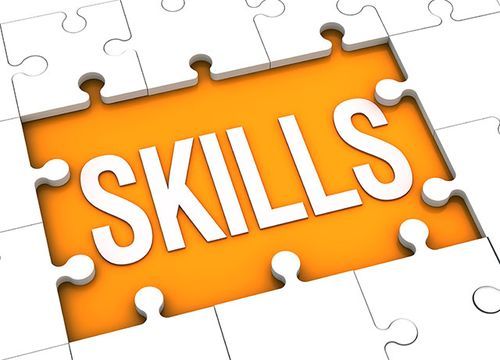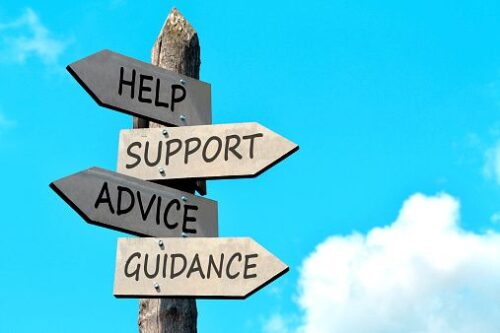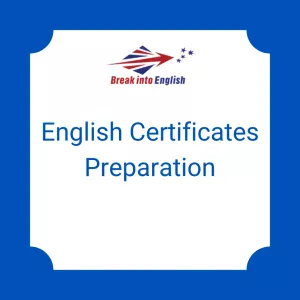job interviews in English
So you have landed some job interviews in English? Firstly, congratulations! This is a big step forward in your career, and a chance to make a great impression to your future employer and get that job.
But let’s be honest: interviews are hard enough for people in their native language, let alone in a foreign language. Here we give you ten tips about preparing for your interview to help you feel confident and nail your interview!

Find out about the Company before your English Job Interview
Do your research.
It’s very important that you know as much as possible about the company before the big day. Take a look at their website – especially any pages labelled ‘About Us’, or other pages about the company’s products, services or team members. Is there any specific language that they use to describe their company’s culture and beliefs? For example, if you see words like ‘passionate’, ‘pioneering’ and ‘excellence’’, try to use these words or similar words during your interview.
For example: I am extremely passionate about my work. I always strive for excellence, and I am looking to bring my experience to your pioneering team.
Make sure you know as much as possible about the company and their product or service. They will probably ask you in the interview, ‘Why do you want to work here?’ or ‘What do you know about the company?’ Be prepared to show them that you know exactly what they offer.
If you’re looking for an english speaking job at the moment, a good place to check is Jooble.
Anticipate Common Questions for Job Interviews in English
Imagine what questions you will hear. Several sites such as https://www.themuse.com/advice/how-to-answer-the-31-most-common-interview-questions can help you prepare.
You should never go to a job interview without carefully planning and preparing what to say. The best way to do this is to imagine and anticipate what kinds of questions they will ask you.
 For instance, they will definitely ask you about your work experience. Common questions include: ‘What can you tell me about yourself? or ‘What is your greatest professional achievement’. Be prepared to talk about what you have done in the past – particularly what successes you have had. This is your chance to show off and convince them what an asset you will be to their team.
For instance, they will definitely ask you about your work experience. Common questions include: ‘What can you tell me about yourself? or ‘What is your greatest professional achievement’. Be prepared to talk about what you have done in the past – particularly what successes you have had. This is your chance to show off and convince them what an asset you will be to their team.
Another example is that you will definitely be asked about what you will bring to the company. Hiring managers would like to know why you are special and better than other candidates. These will probably be questions like: ‘What are your professional strengths’ and ‘Why should we hire you?’ It’s definitely a good idea to have answers ready for these questions.
Prepare your Answers – Grammar and Vocabulary
They’re job interviews in English – so make sure you know the correct English grammar and vocabulary to use! For vocabulary, write a list of positive adjectives to describe yourself and your best qualities. ‘Dedicated’, ‘flexible’, ‘proactive’ and ‘customer-focused’ are good examples, but make sure they are relevant to the job! Search online for common key terms for the industry which you are applying for and make sure you are comfortable using and pronouncing them.
For grammar, do some revision of the past simple and present perfect simple and continuous for describing your experiences and know when to use each one. Use the present perfect to highlight your achievements over your whole career, e.g. ‘I’ve won three awards in my industry’, ‘I’ve worked for both nonprofit and for-profit organisations’ or ‘I’ve been working as a lawyer for the last fifteen years’. Use the past simple to give specific details about your achievements and when you did specific jobs, e.g. ‘I won my first award in 2010’, ‘My first position was as an assistant, but I was quickly promoted to partner.’
A good way to practice your overall skills can be to try an English test that will assess your strengths and weaknesses.
Make English Job Interviews Sound Easy
Practice alone.
It might sound strange, but talking to yourself alone at home will help you to build your confidence in speaking English for your job interview. Practice talking about yourself, your previous jobs and achievements, your studies and your personal qualities in front of the mirror. This is a technique used by people who give speeches and conferences all over the world. The more you practice, the better your fluency will be when you speak in the interview.
Practice with a friend.
After you have practiced alone, get together with an English-speaking friend or, even better, with a qualified native English teacher that you can find online or in person, and do as many interview rehearsals as possible. You can give your speaking partner a list of questions that you have prepared, but also ask them to throw you a few ‘curveballs’, or unexpected questions. This will prepare you to think on your toes!
Practice a few phrases that will give you some thinking time during the interview, such as ‘Let me see…’, ‘That’s a good/interesting question.’, ‘Well…’ or ‘I’ll have to think about that…’ Once you feel comfortable using these phrases, you will be able to use them naturally in your interview when you really do need time!
Stand Out at your Job Interview
Prepare questions to ask your interviewers.
Obviously the interviewers will ask you a lot of questions during the interview, but when they ask you “Do you have any questions for me?”, make sure you aren’t caught by surprise and show you’re prepared by having a mental list of questions to ask. Choose questions that are thoughtful and show your interest in the company. For example, “What do you like about working for this company?”, “How well does the team get on with each other?” or “What kinds of challenges would someone face in this job?” Your interviewer’s answers to these questions will give you a bit of insight into aspects of the company that they might not normally mention.
Of course, you will probably want to ask questions about the salary, especially if you know there will only be one interview. Usually it’s best to wait until the hiring manager brings it up, but if you really want to know and don’t want to waste time doing a second or third interview before you know, this is your time to ask. Just don’t make it the first question!
Look your Best.
As we say in English, first impressions count (especially in job interviews in English)! Unfortunately it’s human nature that a person will make many judgement about you just within the first few seconds of seeing you, so don’t let all your hard work up to this point be ruined by a simple clothing mistake. It’s a pretty safe bet to follow a business type of dress code – no t-shirts, jeans or sleeveless tops. Keep it simple with subdued colors and a modest style – you don’t need to show off your curves unless you are applying for a modelling job! Of course, you want to show your personality, but do that through your body language and English skills; it’s not a fashion show, so keep jewellery and other accessories conservative and to a minimum.
Don’t forget about the small details either. Clean and ironed clothes seem obvious, but when you are rushing about nervously on the day of your interview, it can be easy to forget. Polish your shoes, clean and cut your fingernails, check your clothes for any stains or loose threads, shave and comb your hair so that it looks smooth and tidy.
Take the right things.
The day before your job interviews in English, make sure you have a briefcase, bag or folder with all the right paperwork you will need. This will save you from worrying about everything the morning of the interview. Firstly, make sure you have a pen! There is nothing worse than having to ask your interviewers for a pen in the interview – it looks so unprofessional. In fact, get a professional-looking pen and notepad and be ready to take down lots of notes during the interview. It’s very easy to forget things after the interview because you will be overwhelmed with information. Secondly, check that you have all the documents you will need for your application. This might include your I.D (passport if you are applying from abroad), your original degrees and other training certificates, a couple of copies of your CV and a portfolio of work if necessary. Lastly, prepare a list of references with contact details – they usually ask for this during the interview.
Be confident.
Apart from what you are wearing, your confidence will also leave a very big impression on your future employers. How you feel on the inside will reflect on the outside, so by believing in yourself, your confidence and winning attitude will shine through. However, it’s not always so easy to be confident even if you have followed all the steps above to prepare your English for your interview – sometimes you have to fake it! Remember that body language is just as important as the English language, starting with your introduction. Use a firm handshake and eye contact when you first meet your interviewers. Posture is also important, so keep your back comfortably straight, look your interviewers in the eye when you answer questions, but don’t stare.
If you get asked a question and you aren’t 100% sure what they said, try using reformulating techniques to repeat what you understood with these phrases: “So what you’re saying is…”, “If I understood correctly, you said that…” It’s better to be clear than to talk for a long time about the wrong thing.
Finish your Job Interview in English on a Positive note
Say thanks.
When you have finished the interview, you will probably feel like running out of the room – but don’t! Even if you think you didn’t do very well or you don’t think the position is right for you, finish your interview in a good way by smiling and shaking hands with everyone in the room, giving them eye contact and saying thank you. “Thank you very much for your time today. It was a real pleasure to meet you” is a safe phrase to use. Wait for them to make the next move; usually, they will tell you when you can expect to hear from them. If for some reason they don’t, you can ask them: “When can I expect to hear more about the position?” Finish off with some nice pleasantries, like “Have a lovely afternoon. I look forward to speaking to you again soon” and leave the room with an air of confidence.
So now you are ready for your job interviews in English. Good luck! And if you feel you still need some help to prepare, at Break Into English we have native teachers that will practice with you 1 to 1 until your confidence is 100%. We thank https://careeremployer.com/ for allowing us to use their image in this article.








